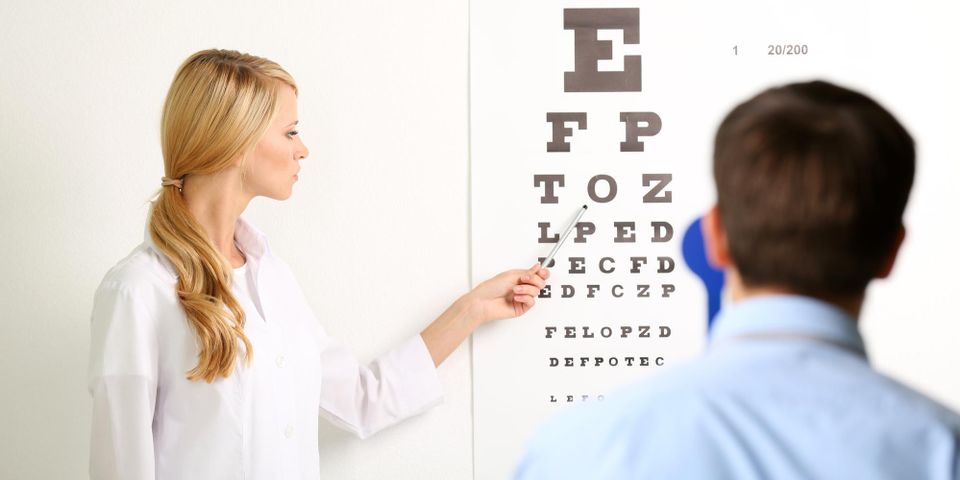
The term legally blind doesn’t mean that a person has lost all of their vision. Instead, it simply means that eye exams have revealed that their visual acuity falls within a designated range. However, being legally blind does affect an individual’s life, so it’s helpful to understand who qualifies for this designation and what possible treatment options are available.
What Is Legal Blindness?
According to the American Foundation for the Blind, legal blindness is a definition used by the United States government to determine eligibility for vocational training, rehabilitation, schooling, disability benefits, low vision devices, and tax exemption programs.
To qualify for this status, a person must meet one of two criteria. A person whose eye exams indicate that their vision is 20/200 or worse in their better-seeing eye is considered legally blind. However, their vision must be 20/200 or worse while wearing some form of corrective lens.
The second criteria that can lead to a legally blind designation is an impaired visual field. If a person suffers from tunnel vision, then they have a field of vision that is 20 degrees or less without moving their eyes. People who have tunnel vision in their better-seeing eye are also considered to be legally blind.
What Treatments Are Available?
 If your eyesight is naturally 20/200 or worse, or you suffer from tunnel vision, you aren’t automatically deemed to be legally blind. That’s because there are treatment options available that counteract these issues and improve your eyesight to the point where you no longer fall under the legal designation.
If your eyesight is naturally 20/200 or worse, or you suffer from tunnel vision, you aren’t automatically deemed to be legally blind. That’s because there are treatment options available that counteract these issues and improve your eyesight to the point where you no longer fall under the legal designation.
The most common options to treat low vision are prescription eyeglasses or contact lenses. These solutions allow the eye to focus light in the right spot on the retina to make your vision clearer, and they are tailored to each individuals’ unique visual requirements.
Laser surgery is another option. With this treatment, a surgeon uses a laser to reshape the cornea and correct refraction problems, so you can see clearly again without the need for prescription lenses.
There aren’t as many treatment options available for people who suffer from tunnel vision. Depending on the severity of the problem, a prism can sometimes be inserted into prescription lenses to expand the field of view. If the tunnel vision is caused by glaucoma, the regular use of prescription eye drops can prevent the problem from getting worse.
If you’re concerned about legal blindness, visit the experts at Pal Optical. This locally owned and operated company has been serving Lexington, KY, residents for more than 60 years, and they have the experience needed to provide the best care possible. They’ll perform an eye exam to discern the severity of your low vision and prescribe a treatment option tailored to your unique needs. Visit them online for more information, or schedule an appointment by calling (859) 266-3003.
About the Business
(16 reviews)
Have a question? Ask the experts!
Send your question

